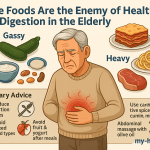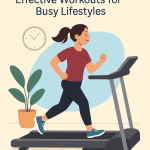Understanding Anxiety
Anxiety is a common mental health condition that affects millions of people worldwide. It can manifest in various forms, from generalized anxiety disorder (GAD) to panic attacks and social anxiety. Understanding the nature of anxiety is the first step toward managing it effectively.
What Causes Anxiety?
Anxiety can stem from a combination of genetic, environmental, and psychological factors. Stressful life events, such as losing a job or experiencing a traumatic event, can trigger anxiety symptoms. Additionally, brain chemistry and hormonal changes can also play a significant role. Neurotransmitters like serotonin and dopamine are crucial in regulating mood and anxiety levels. When these chemicals are imbalanced, it can lead to heightened feelings of anxiety (NIMH, 2021).
Moreover, the amygdala, a part of the brain associated with emotional processing, can become hyperactive in individuals with anxiety disorders. This hyperactivity can lead to an exaggerated response to perceived threats, causing a cycle of anxiety that can be difficult to break.
Effective Coping Strategies for Anxiety
Managing anxiety often requires a multifaceted approach. Here are several effective coping strategies that can help you regain control over your mental health.
1. Mindfulness and Meditation
Mindfulness involves focusing on the present moment without judgment. Practicing mindfulness can significantly reduce anxiety levels. Techniques such as deep breathing, body scanning, and guided imagery can help center your thoughts and calm your mind. Consider starting with just five minutes a day and gradually increasing the duration. Research shows that mindfulness-based stress reduction (MBSR) can lead to significant decreases in anxiety symptoms (Kabat-Zinn, 2020).
Practical Tips for Mindfulness:
- Set aside a specific time each day for mindfulness practice.
- Use apps like Headspace or Calm to guide your sessions.
- Incorporate mindfulness into daily activities, like eating or walking.
- Try to observe your thoughts as if they are clouds passing by, without attaching to them.
2. Cognitive Behavioral Therapy (CBT)
CBT is a well-researched therapeutic approach that helps individuals identify and challenge negative thought patterns. By reframing your thoughts, you can change how you feel and respond to anxiety-provoking situations. Many people find CBT effective in reducing anxiety symptoms over time. A meta-analysis indicated that CBT can lead to significant improvements in anxiety and is considered a first-line treatment for anxiety disorders (Hofmann et al., 2012).
CBT also emphasizes the importance of behavioral activation, which involves engaging in activities that align with your values, even when you don’t feel like it. This approach can help break the cycle of avoidance that often accompanies anxiety.
Implementing CBT Techniques:
- Keep a thought diary to track negative thoughts and challenge them.
- Practice exposure exercises to gradually face anxiety-inducing situations.
- Work with a therapist to develop personalized coping strategies.
- Practice cognitive restructuring by identifying cognitive distortions such as catastrophizing or black-and-white thinking.
3. Physical Activity
Regular exercise is a powerful tool for managing anxiety. Physical activity releases endorphins, which can improve your mood and reduce stress. Aim for at least 30 minutes of moderate exercise most days of the week. Activities like walking, jogging, yoga, or dancing can be particularly beneficial. A study published in the journal Psychosomatic Medicine found that individuals who engage in regular physical activity report lower levels of anxiety (Salmon et al., 2003).
Exercise also promotes neurogenesis—the growth of new neurons—which can enhance cognitive function and emotional resilience. Even short bursts of physical activity can trigger a positive change in mood.
Steps to Incorporate Exercise:
- Choose activities you enjoy to increase adherence.
- Set realistic goals, like walking for 10 minutes a day, and gradually increase.
- Consider joining a class or group for social support.
- Mix different types of exercise to keep things interesting and engaging.
4. Building a Support Network
Connecting with others can provide emotional support and reduce feelings of isolation. Whether it’s friends, family, or support groups, sharing your experiences with people who understand can be incredibly healing. Don’t hesitate to reach out when you need to talk. Research indicates that social support is a crucial buffer against anxiety and can enhance coping strategies (Taylor, 2011).
Moreover, participating in group activities can foster a sense of belonging, which is vital for mental well-being. The act of sharing your feelings can also lighten the emotional load you carry.
Ways to Build Your Network:
- Join local or online support groups focused on anxiety management.
- Schedule regular check-ins with friends or family members.
- Volunteer or participate in community activities to meet new people.
- Consider joining clubs or classes that align with your interests.
5. Healthy Lifestyle Choices
Maintaining a balanced diet, getting enough sleep, and avoiding excessive alcohol and caffeine can significantly impact your mental health. Foods rich in omega-3 fatty acids, whole grains, and leafy greens can support brain health and improve your mood. The World Health Organization emphasizes the importance of nutrition in mental health, noting that certain dietary patterns can influence the onset of anxiety disorders (WHO, 2022).
Sleep is particularly crucial; inadequate sleep can exacerbate anxiety symptoms, creating a vicious cycle. Aiming for 7-9 hours of quality sleep each night can help stabilize your mood.
Tips for Healthy Living:
- Incorporate foods like fish, nuts, and seeds into your meals.
- Establish a regular sleep schedule to improve sleep quality.
- Limit caffeine intake to reduce anxiety symptoms.
- Stay hydrated, as dehydration can affect mood and cognitive function.
Myth vs. Fact
| Myth | Fact |
|---|---|
| Anxiety is just stress. | Anxiety is a distinct mental health condition that can persist even in the absence of stressors. |
| Medication is the only solution. | While medication can help, many effective non-pharmaceutical strategies exist, including therapy and lifestyle changes. |
| People with anxiety should avoid social situations. | Gradual exposure to social settings can help reduce anxiety over time. |
| All anxiety is bad. | Some anxiety can be beneficial, motivating you to prepare for challenges. |
| Anxiety is a sign of weakness. | Anxiety is a common human experience and not a reflection of personal strength or character. |
Patient Vignette
Meet Sarah, a 28-year-old graphic designer who struggled with anxiety for years. After feeling overwhelmed at work, she decided to seek help. Through a combination of CBT, regular exercise, and mindfulness practices, Sarah learned to manage her anxiety effectively. She began journaling her thoughts, which helped her identify triggers. Today, she uses her coping strategies to navigate stressful situations, allowing her to enjoy her work and personal life more fully. Sarah also emphasizes the importance of her support network, which includes friends and a therapist who understand her journey.
Frequently Asked Questions
What are the first signs of anxiety?
Common early signs include excessive worry, restlessness, fatigue, difficulty concentrating, and physical symptoms like increased heart rate.
Can anxiety be treated without medication?
Yes, many individuals successfully manage anxiety through therapy, lifestyle changes, and coping strategies without medication.
How long does it take to see improvement with coping strategies?
Improvements can vary, but many people notice positive changes within a few weeks of consistently practicing coping strategies.
Is it normal to feel anxious sometimes?
Yes, experiencing anxiety in response to stress is normal. However, if anxiety interferes with daily life, it may be time to seek help.
What role does diet play in managing anxiety?
A balanced diet can support brain health and mood regulation, making it an important aspect of anxiety management.
Can anxiety lead to physical health problems?
Yes, chronic anxiety can contribute to various physical health issues, including cardiovascular problems and weakened immune function.
How can I support a friend with anxiety?
Listen without judgment, encourage them to seek help, and offer to accompany them to appointments or support groups.
Conclusion
Managing anxiety is a journey that often requires patience and persistence. By incorporating these coping strategies into your daily routine, you can take significant steps toward improving your mental health. Remember, it’s okay to seek help from professionals when needed. You are not alone in this journey. Embrace the process, and know that with time and effort, you can find relief and regain control over your life.
Key Takeaways
- Anxiety affects many; understanding its causes is crucial.
- Mindfulness and exercise are effective coping strategies.
- Cognitive Behavioral Therapy can help reframe negative thoughts.
- Building a support network is vital for emotional health.
- Healthy lifestyle choices contribute to anxiety management.
References
- American Psychological Association. (2020). Understanding anxiety disorders.
- National Institute of Mental Health. (2021). Anxiety Disorders.
- World Health Organization. (2022). Mental health: strengthening our response.
- Centers for Disease Control and Prevention. (2022). Coping with stress.
- National Health Service. (2021). Anxiety – Overview.
- UpToDate. (2023). Treatment of anxiety disorders.
- Kabat-Zinn, J. (2020). Mindfulness-Based Stress Reduction.
- Hofmann, S. G., Asnaani, A., Vonk, I. J. J., Sawyer, A. T., & Fang, A. (2012). The Efficacy of Cognitive Behavioral Therapy: A Meta-Analysis.
- Salmon, P., Disley, B., & Wainwright, D. (2003). Effects of physical activity on psychological well-being.
- Taylor, S. E. (2011). Social Support: A Review.








Post a comment